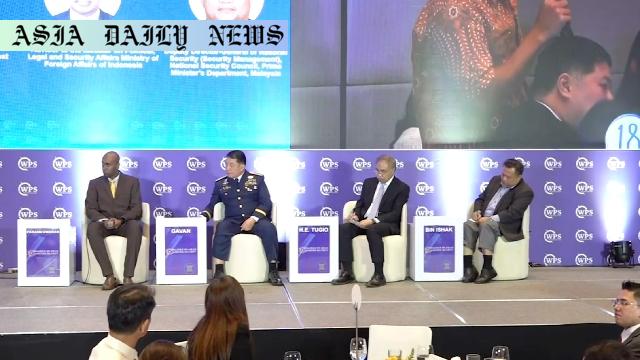Maritime Security: Philippines hosts dialogue for ASEAN cooperation on security, conflict prevention, and peace in Southeast Asia.

Introduction to the ASEAN Maritime Security Dialogue
The Philippines has taken a significant step in strengthening regional cooperation on maritime security by hosting a three-day dialogue. This event, organized by a Philippine-based research group in collaboration with the Philippine Coast Guard, aims to address pressing maritime concerns, including tensions in the South China Sea. Approximately 100 prominent Southeast Asian policymakers, foreign policy experts, and emerging leaders have gathered to deliberate on critical issues impacting the region. The conference underscores the importance of conflict prevention, sustainable governance, and lasting peace.
The Strategic Importance of the South China Sea
The South China Sea remains one of the world’s most contentious maritime zones. Rich in natural resources and critical marine biodiversity, the region serves as a crucial transportation route for global trade. However, it is marred by overlapping territorial claims. The Philippines, alongside other Southeast Asian nations, has urged collective action to uphold international laws and maintain regional stability. This dialogue provides a platform for ASEAN members to explore ways to address these disputes effectively while respecting the sovereignty of each country.
Efforts Towards Peace and Conflict Prevention
Coast Guard chief Ronnie Gil Gavan emphasized the need for ASEAN members to transcend their differences and collaborate on shared goals. The dialogue encompasses key themes, including innovative technologies for maritime monitoring, sustainable governance strategies, and enhanced multilateral partnerships. Strengthening alliances within ASEAN is seen as pivotal to deterring illegal actions and promoting peaceful resolutions in contested waters.
Philippine Leadership and Upcoming ASEAN Summit
The timing of this dialogue is strategic, occurring days before the ASEAN summit in Malaysia. During last year’s summit, Philippine President Ferdinand Marcos Jr. strongly advocated for unity against aggressive and illegal activities in the South China Sea, particularly by major powers like China. This year, the dialogue represents a continuation of that advocacy, signaling the Philippines’ firm commitment to championing regional cooperation and security. Bilateral and multilateral discussions from this dialogue are expected to influence the broader agenda at the upcoming summit.
Conclusion: A Call for Collective Action
As the dialogue progresses, ASEAN member nations have the opportunity to address maritime security challenges comprehensively and collaboratively. The Philippines’ leadership in hosting this event demonstrates its proactive stance on fostering peace through diplomacy and dialogue. With tensions in the South China Sea showing no signs of abating, initiatives such as these underscore the importance of united efforts in safeguarding shared interests and ensuring a stable and prosperous future for the region.
Commentary
The Significance of Maritime Security Dialogues
The ASEAN dialogue on maritime security hosted by the Philippines is a commendable step towards addressing one of the most pressing challenges in the region today. The South China Sea represents a flashpoint in international relations, where overlapping claims have led to heightened tensions among regional powers. By bringing together experts, policymakers, and the next generation of leaders, the dialogue offers a platform for constructive discussions and collaborative problem-solving. Maritime security is not merely a regional concern but a global one, impacting trade, the environment, and geopolitical stability.
Philippine Leadership and Regional Cooperation
The Philippines’ effort to lead this dialogue highlights its commitment to fostering peace and regional cooperation. This move aligns with President Ferdinand Marcos Jr.’s earlier calls for ASEAN members to take a stronger stance against coercive actions in contested waters. The dialogue underscores the Philippines’ strategic foresight in recognizing that regional issues require collective solutions. Through such dialogues, ASEAN nations can work towards shared goals of conflict prevention, sustainable governance, and economic growth.
The Road Ahead: Challenges and Opportunities
While the dialogue is a step in the right direction, challenges remain. ASEAN has historically struggled to form a unified stance on the South China Sea due to the differing national interests of its members. However, this event demonstrates that dialogue and diplomacy are still viable pathways for addressing these differences. By focusing on shared values like regional stability and adherence to international laws, the bloc can strengthen its position on maritime issues. The Philippines’ hosting of this event sets a precedent for more proactive and inclusive discussions in the future.
Moving forward, it will be crucial for ASEAN to translate discussions into actionable policies. Technological innovations, sustainable practices, and multilateral agreements could be the cornerstone of a new era in Southeast Asian maritime relations. The ASEAN dialogue is not just a diplomatic event; it is a testament to the resilience and unity of a region seeking peace and progress in turbulent waters.


